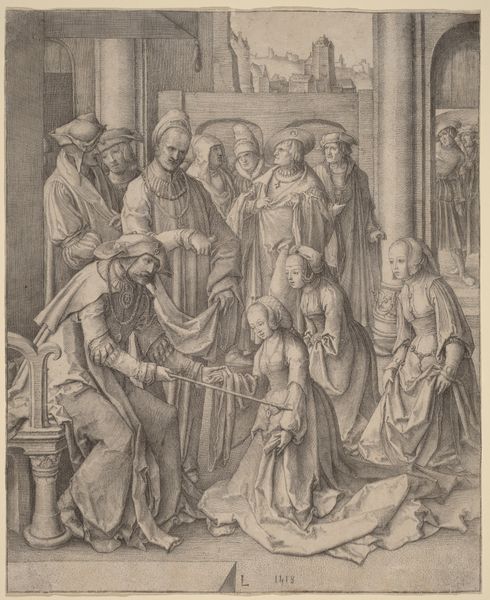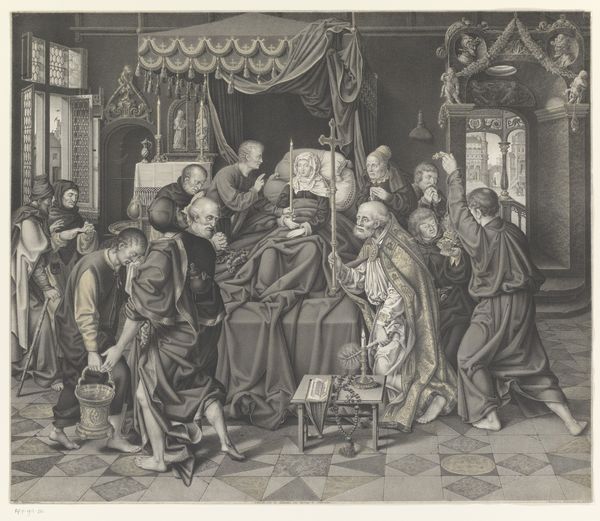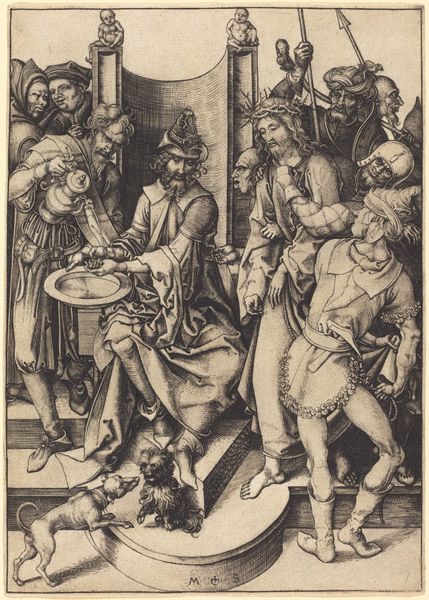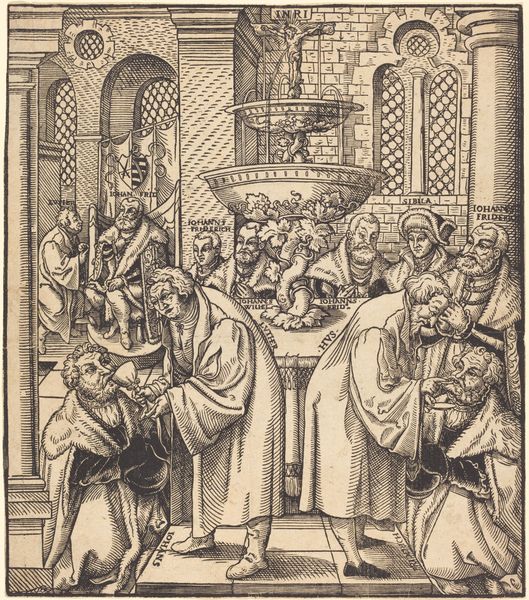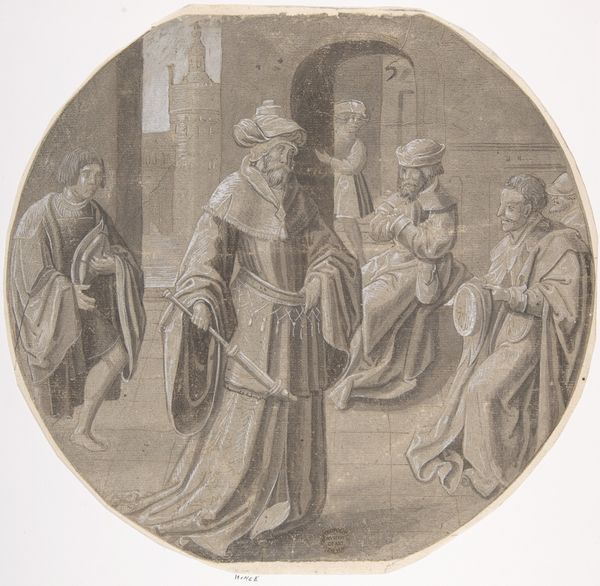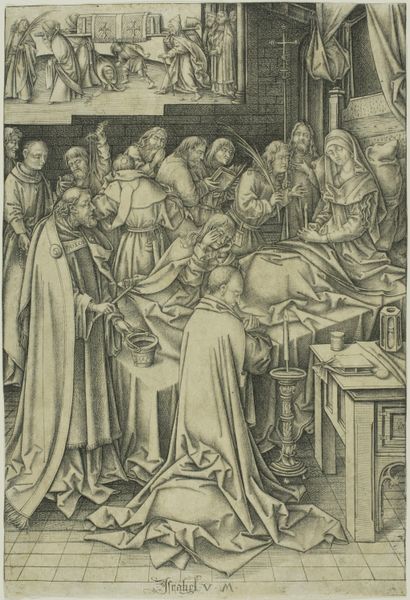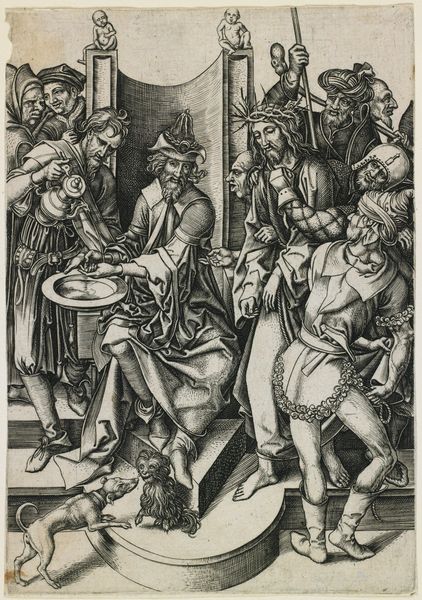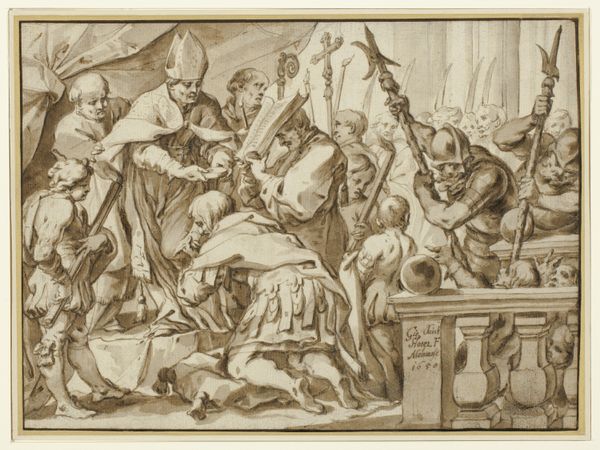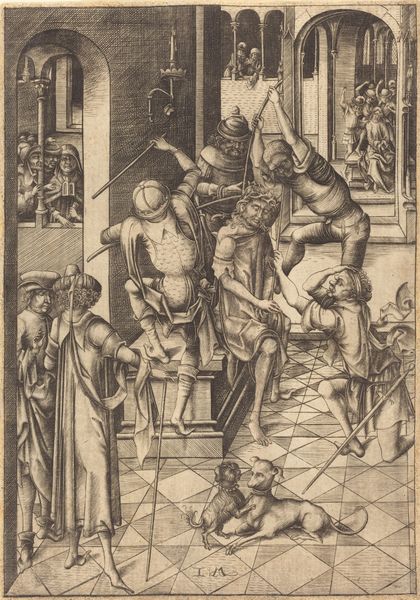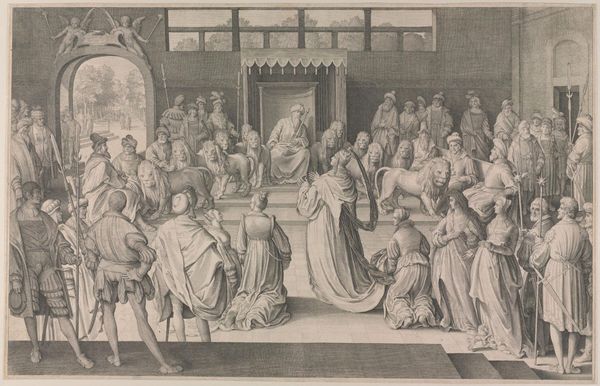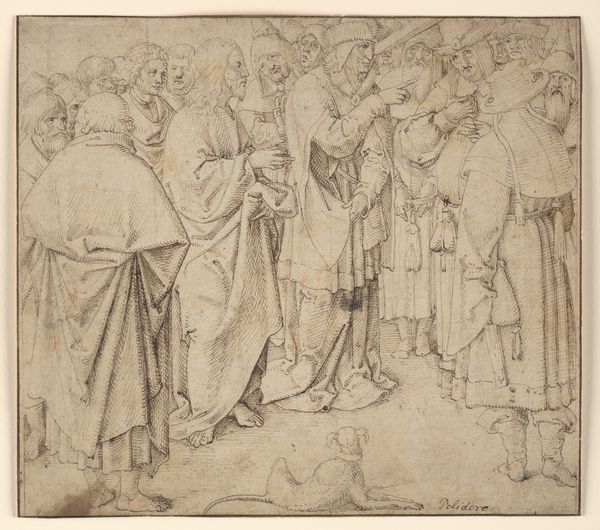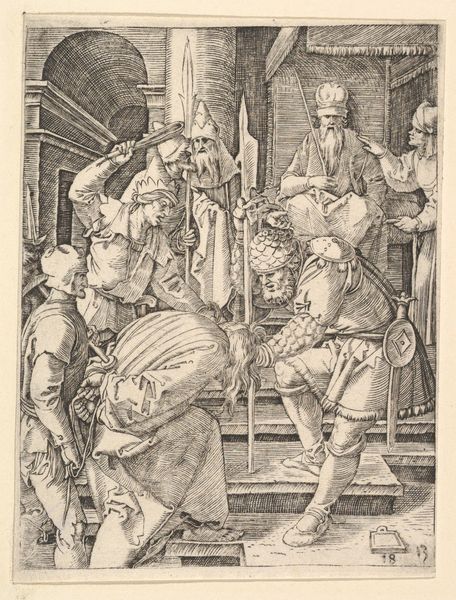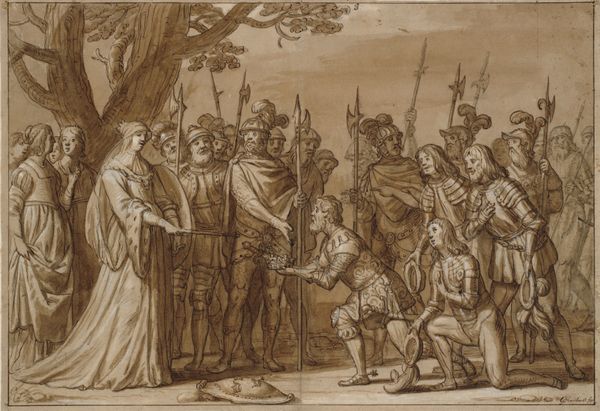
Pontius Pilate washing his hands (Grey Passion-7) 1500
0:00
0:00
hansholbeintheelder
Staatsgalerie Stuttgart, Stuttgart, Germany
painting, oil-paint
#
portrait
#
painting
#
oil-paint
#
oil painting
#
history-painting
#
academic-art
#
italian-renaissance
#
portrait art
Copyright: Public domain
Hans Holbein the Elder painted "Pontius Pilate Washing His Hands" around 1522, capturing a pivotal moment laden with symbolic weight. Pilate's act is not just a cleansing but a theatrical gesture—a public disavowal of responsibility, rooted in the ancient Roman custom of purification. The basin and ewer are central. Water, universally a symbol of purity, here becomes a tool for absolution, though a futile one. This motif echoes across cultures; consider Lady Macbeth's desperate cry, "Wash this filthy witness from your hand," revealing the psychological burden of guilt that water cannot erase. Holbein's scene is charged with tension; Pilate’s downcast eyes and weary posture speak volumes. The symbolic act of washing hands, while intended to distance oneself from moral culpability, ultimately binds Pilate to the event in the collective memory, an eternal return of the repressed guilt.
Comments
No comments
Be the first to comment and join the conversation on the ultimate creative platform.
